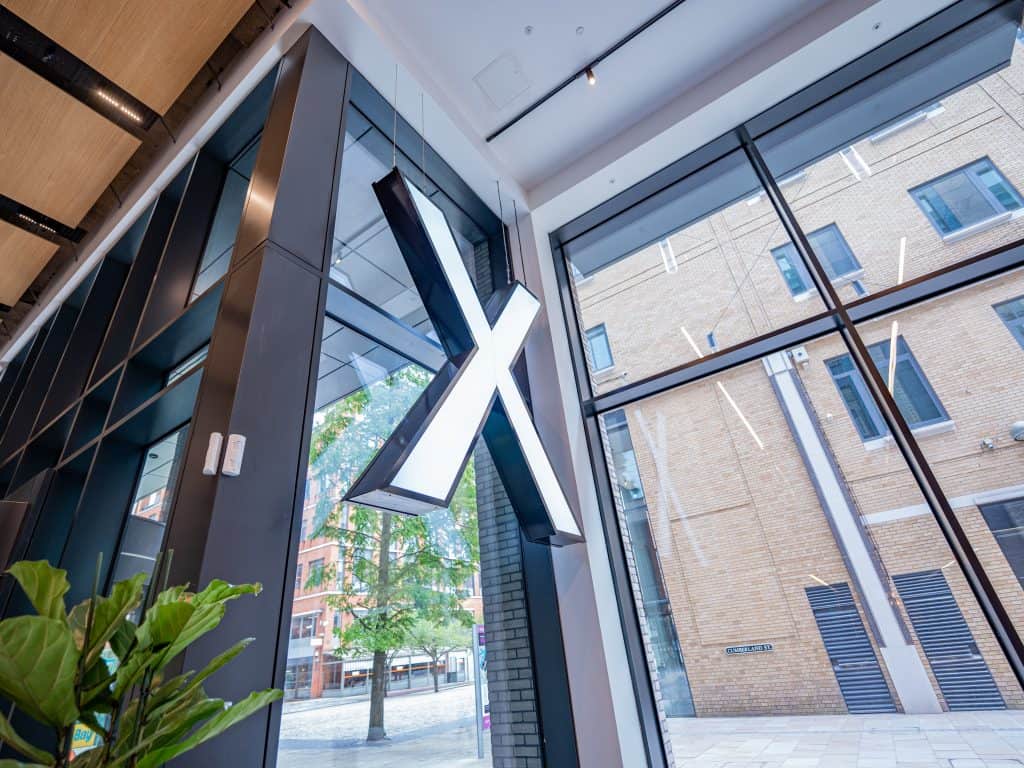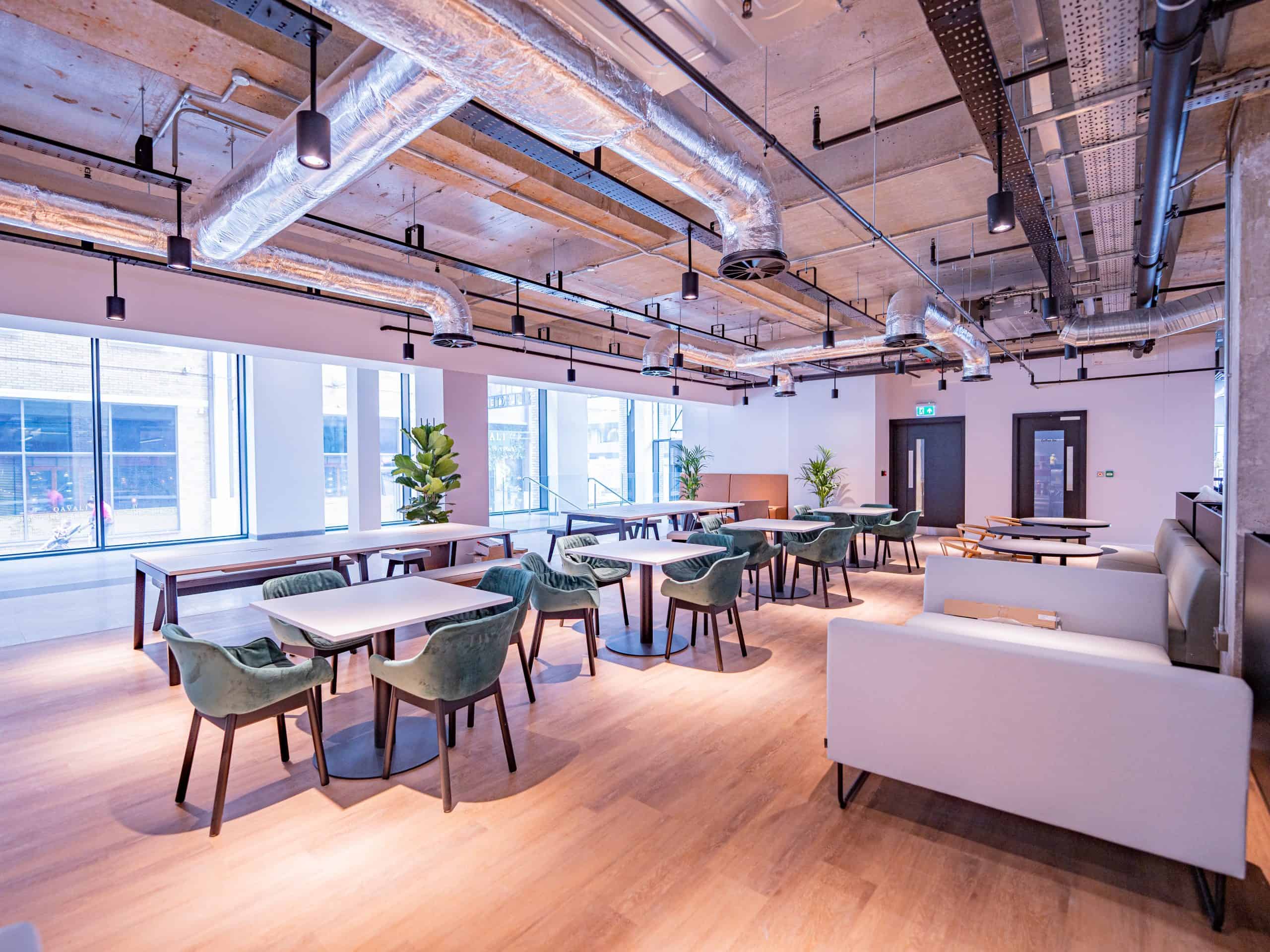Sustainable buildings can deliver a range of benefits, from increasing the value of property to reducing environmental impact and lowering operational and maintenance costs.
The difficulty faced by occupiers, landlords and developers is in navigating a complex, overcrowded market of sustainability related benchmarks and accreditations, including: Fitwel, BREEAM, WELL and NABERS.
As part of a series of articles, we’re unpacking the basics of sustainability accreditations. We’ll take a look at what is covered under Fitwel, why it is important and how we support our customers in achieving accreditation for their own fit out and refurbishment projects.
What is Fitwel certification?
Fitwel – also known as ‘facility innovations towards wellness environment leadership’ – is a healthy building certification system that focuses on improving the lives of occupants and local communities.
Developed by the Center for Disease Control and Prevention and the General Services Administration, it provides valuable insights on designing and operating healthier buildings.
Fitwel building certification considers the multiple ways that a building impacts the health and wellbeing of its occupants. It is particularly well suited to existing buildings, providing opportunities for engagement with customers to choose the strategies that best apply to the occupants of that project.
Why is Fitwel important?
Three major reasons to consider Fitwel certification for your project:
- 49% of building owners are willing to pay more for buildings that demonstrate a positive impact on health
- 45% of investors own or are interested in ‘impact investments’ – that is, buildings with strong environmental, social, and governance (ESG) performance
- 84% understand how their building supports occupant health thanks to the information and performance data gained during a sustainable building certification process
What are the benefits of Fitwel?
Fitwel building certification is a widely recognised and respected credential in the building industry.
Certification can enhance a building’s reputation and differentiate it from competitors, making it more attractive in a market that increasingly favours healthy, sustainable buildings.
Potential occupiers are also more likely to be attracted by the prospect of increased productivity, lower absenteeism and other positive outcomes that a Fitwel certified building can offer.
Fitwel accreditation benefits from comparatively straightforward requirements and low barriers to entry. It is also simpler to implement and document when compared to other sustainable building certifications.
Other key benefits of Fitwel certification include:
- Improved occupant health and wellbeing
- Increased tenant satisfaction
- Enhanced reputation
- Potential cost savings (i.e. through reduced absenteeism of occupants)
- Improved compliance with regulations and standards
How are Fitwel projects assessed?
Fitwel accreditation uses specific scorecards – each with its own in-depth project-type requirements – which depend on the type of project that is being certified.
A Fitwel scorecard comprises strategy requirements assessed under 12 themes noted below and points are scored each time the design makes provision for strategy requirements.
- Location – g. walkability and options of public transport use and proximity to multiple amenities.
- Building access – e.g. provision for pedestrian routes, bicycle storage, cyclist facilities, car parks and annual surveys of occupants.
- Outdoor spaces – g. inclusion of outdoor spaces in the form of walking trail, fitness area, restorative garden, farmers market etc.
- Entrances and ground floor – g. signage and entry way considerations creating connection through building orientation, sidewalks, streetscapes, ground floor space for social interaction, community engagement, retail etc.
- Stairs – g. enabling connectivity of occupants through clear, visible signage towards safe access.
- Indoor environment – g. wellbeing considerations implementing actions to create spaces that are tobacco and smoke free, asbestos free, aligned to green purchasing, pest management etc.
- Workspaces – g. comfort of occupants through design considerations of daylight, views of nature, shading, thermal comfort.
- Shared spaces – g. creating shared collaborative spaces for all occupants such as exercise area, multi-purpose room, quiet room, etc. while maintaining protocols and signage for cleaning and use of spaces.
- Water supply – g. provision of regularly tested, accessible and potable water including wheelchair users.
- Prepared food areas – g. ensuring occupants make healthy food choices through access to healthy food and beverage selection with nutritional value details.
- Vending machines and snack bars – g. healthy food and beverage choices supported via choice architecture practices for vending machines and snack bars.
- Emergency preparedness – g. development of an emergency response plan with certified qualified first responders and access to toolkits that help occupants respond quickly and be safe.
How is Fitwel building certification scored?
Fitwel certification uses a points-based system with the highest score being 144. A Fitwel score is translated into a star rating with certification, depending on where the assessed project falls within the scorecard requirements.
- Not Certified = 0-89 points
- Fitwel one star = 90-104 points
- Fitwel two stars = 105-124 points
- Fitwel three stars = 125-144 points
Take a look at our Fitwel certified projects
Willmott Dixon Interiors is at the forefront of delivering many highly sustainable buildings nationwide and a recently completed project 10 Brindleyplace, Birmingham, is the city’s first ever building to achieve Fitwel certification.

10 Brindleyplace is Birmingham’s first office building to receive Fitwel accreditation.
